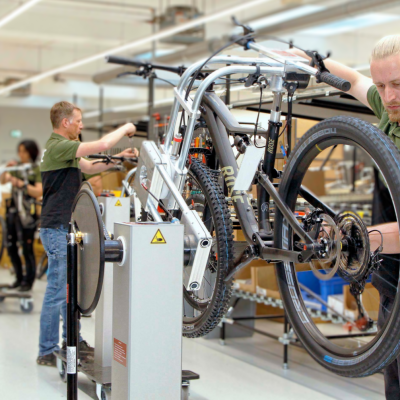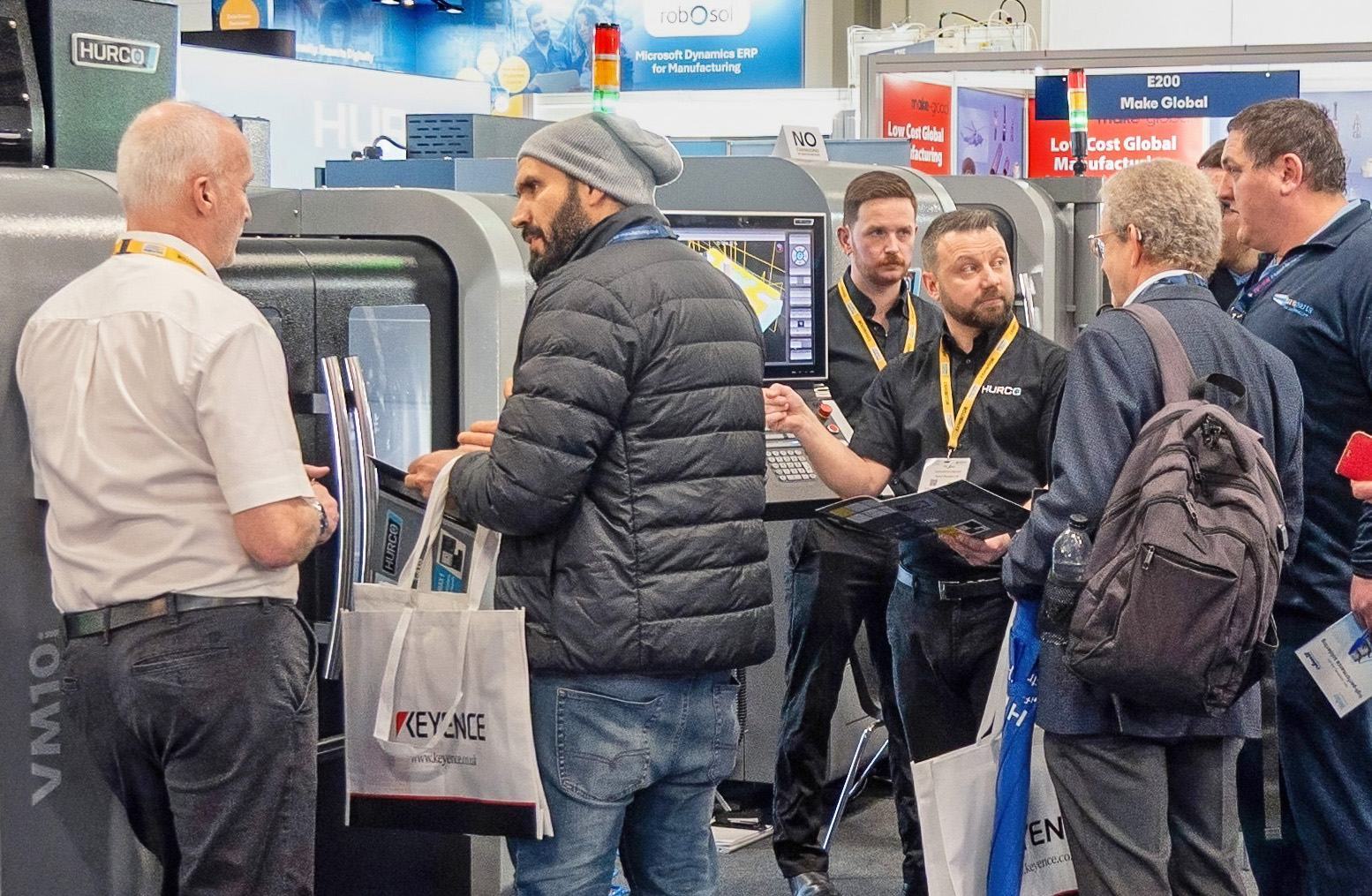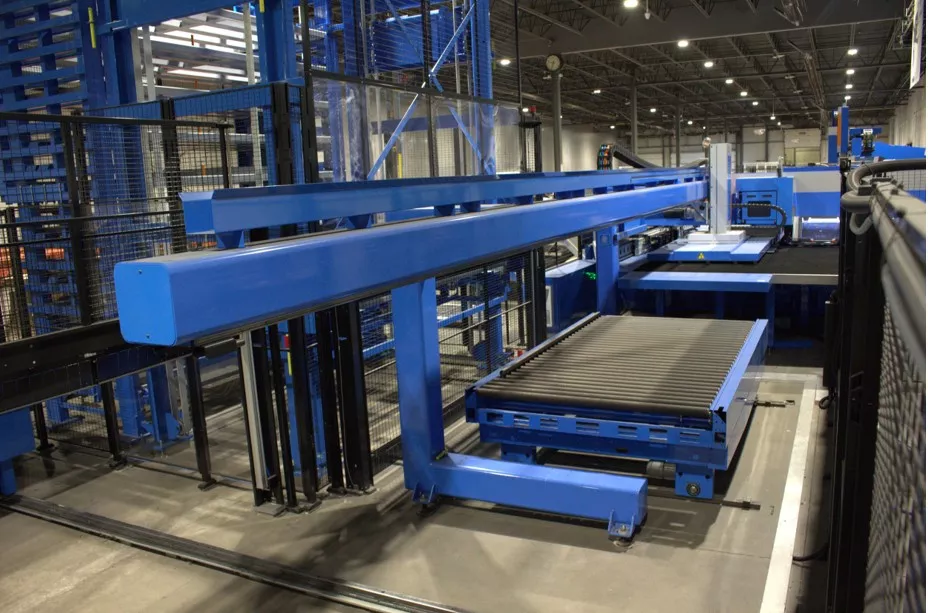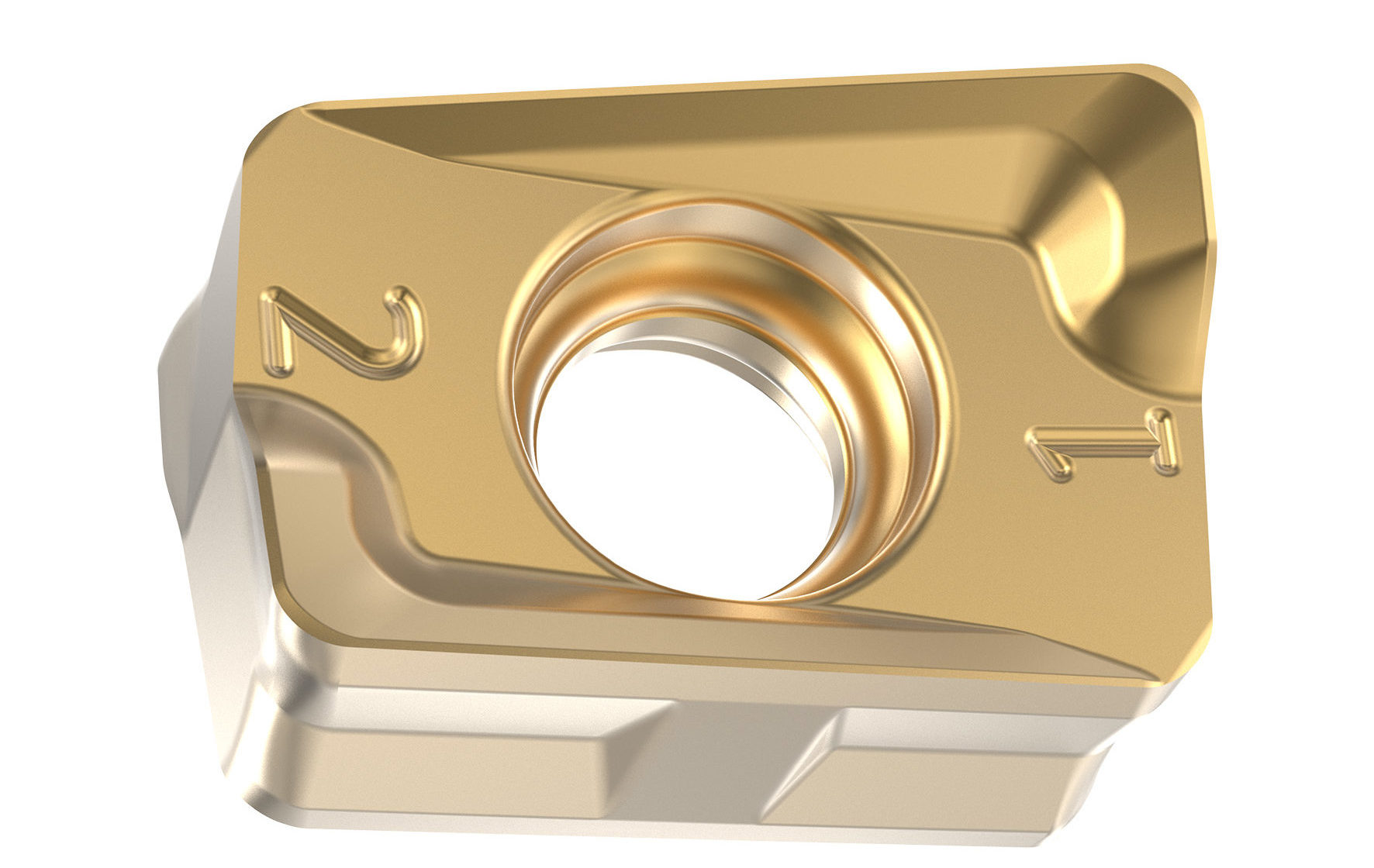Ergonomic assembly boosts productivity
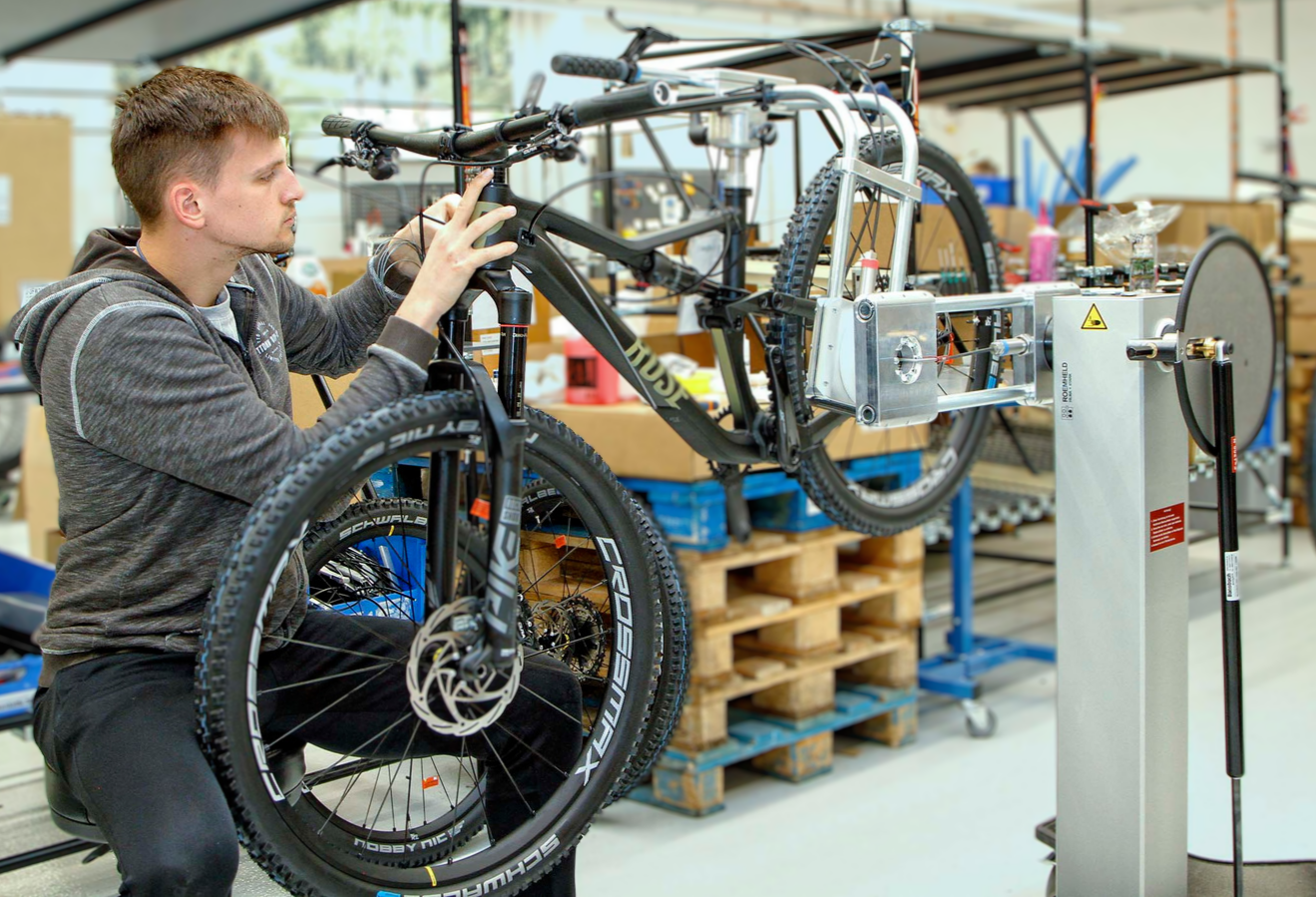
At Rose Bikes in Bocholt, 120 different bicycle and e-bike models weighing between 5 kg and 28 kg are ergonomically manufactured in six flow lines with the help of flexible Bike Promobil assembly carts produced by Roemheld, Laubach.
A shortage of potential employees in the Bocholt area, near the Dutch border, prompted family-run Rose to look for a production solution to meet increasing demand for its products. Instead of producing on a conveyor belt, as is the case with other bicycle manufacturers, Rose chose the flow line option when it opened its new factory in 2020. It was deemed to be a more attractive environment in which to assemble bikes.
Stefan Strauss, production manager at Rose explained, “The conveyor belt is too inflexible and tends to stress employees. Flow line production is much more operator friendly, so it is easier to find new staff and to train them. Work should be fun. We don’t have anyone watching with a stopwatch and staff take turns at different stations to maintain their interest.”
Strauss, a trained bicycle mechanic, has remained loyal to the company since 1983 when he began his apprenticeship there. Today he is responsible for 80 employees, 70 of whom work in production of a wide range of products extending from simple mountain bikes retailing at just under 800 euros to high-end road bikes with carbon fibre frames costing ten times as much.
Strauss originally wanted to design and build an assembly aid himself, but did not have enough time. So in 2020 Roemheld offered an early version of the cart, but it was too big, heavy, inflexible and expensive. A development partnership was formed to address these issues. One elegant idea the team came up with was to hold the bike not by gripping on the frame but by placing an insert into the seat tube. Different tube diameters on the various bike models are accommodated by adapter sleeves, making the clamping process universal across the whole range.
Roemheld eventually produced and supplied 130 of the refined Bike Promobil flexible assembly carts to facilitate work on every Rose model in every position. They boost productivity by ensuring that operators do not over-exert themselves and become tired too quickly. Simple bikes are assembled in two lines with a maximum of eight stations, while complex bikes require up to 15 production stations. A push bike without gears is ready in 50 minutes, whereas the top e-bike model requires around 220 minutes for assembly.
Without the need for any external power supply, the mobile cart is used for all assembly tasks in bike production. It allows Rose to design production lines for efficient and flexible processing and to react quickly to changing customer orders and material availability. The workholding device enables employees to take on different assembly tasks so that their work is more varied. Strauss said, “Our goal is that every fitter is able to work at every station.”
The unit has a heavy base frame but is easy to move on large castors. When working on a bike, the mechanic locks the cart using a foot pedal. The ability to index the frame in two rotary axes allows it to be fixed precisely in numerous positions and rotary couplings mean the bike can be moved infinitely in any direction. The rotary axes also allow the bike to be swivelled sideways so that the bottom bracket and brakes are easy to reach.
If the operator needs to change the height, it is simply necessary to guide the bike diagonally upwards or downwards. Adjustment of a gas spring using a spanner enables variable load compensation in seconds, allowing the cart to support the weight of the bike as it becomes progressively heavier during the assembly process.
Strauss affirmed, “Our mechanics are very satisfied with the Roemheld assembly cart. At the beginning, some employees were a little uncertain due to the multitude of adjustment options. But after trying it out and becoming familiar with it, the sceptics are now entirely convinced. Everyone wants to keep the Bike Promobil.”

